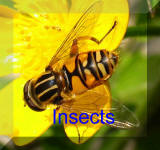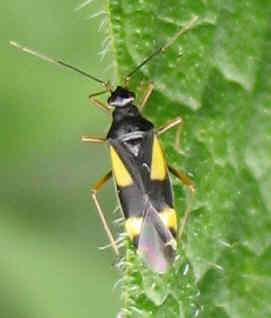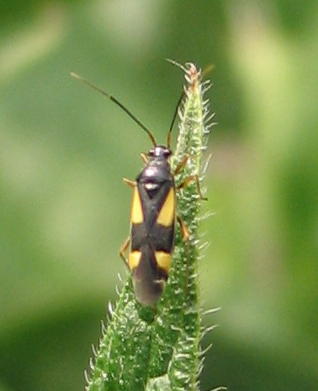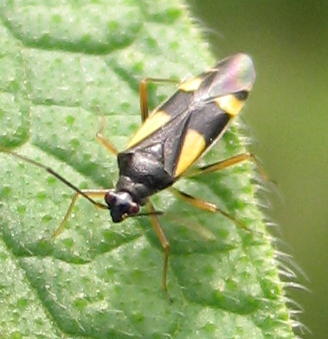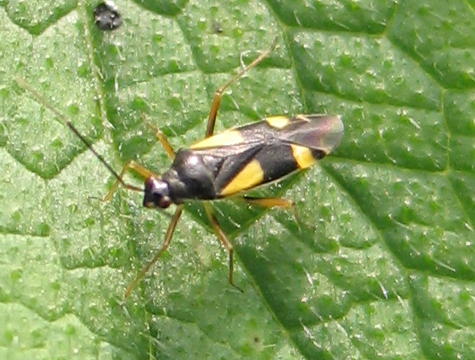Classification Order: Heteroptera Family: Miridae
Home > Heteroptera >> Miridae
Length 5-6 mm
Phenology May-June
Length 6-7 mm
Identification
A mirid with black with yellow markings and a species dependeant on Oak
Dryophilocoris flavoquadrimaculatus is relatively easy to identify, but they are similar black and yellow species to eliminate Eg Globiceps cruciatus, with a less extensive yellow area to the front of the corium
The pronotum and forewings of this Mirid are covered with fine upright hairs, The posterior of the pronotum is strongly elevated .The pronotum is raised into small points at the corners and is also covered in fine hairs. It is always macropterous - fully wingedDryophilocoris flavoquadrimaculatus is very common on and around oak. It can be seen sucking on both plants and insects. Reaching some 6 or 7 mm in length it is much smaller than the previous species. The adults appear for a short time only and are seen in May and June mainly. It has a burden to carry: a long and complicated scientific name, meaning something like 'yellow four-spot'. A common species all over Europe and Northern Africa and, as far as we know, very common in Britain and Ireland as well. Even though Dryophilocoris flavoquadrimaculatus is quite easy to identify, you have to pay close attention, as there are quite a few similar black and yellow species.
Habitat Commonly found on Oak throughout Britain, but also amongst low herbage and on umbellifers.

